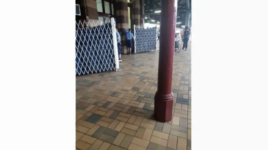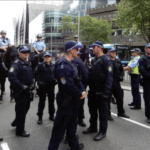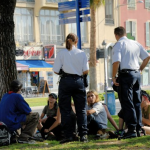What are the Rules for Strip Searches in New South Wales?

The number of strip searches conducted by police officers in New South Wales has increased twenty-fold over the past twenty years, and the figures continue to rise despite multiple inquiries finding these invasive procedures are routinely being conducted in contravention of legal requirements.
Examples of the unlawful use of these searches include multiple instances of male officers strip searching young females at music festivals, strip searching protesters as a means of intimidation, strip searching individuals outside shops and other public places in full view of passers-by and even strip searching children and toddlers in blatant breach of the law.
The failure of the top brass to issue directions against the unlawful use of strip searches let alone to discipline offending officers, and the ineffectiveness of the police watchdog – the Law Enforcement Conduct Commission – to effect any real change, has led to widespread criticism, with the systemic illegal use of the degrading procedure being labelled as state-sanctioned sexual assault and triggering a class action against the New South Wales Police Force.
Knowing the rules that apply to strip searches in our state can serve as a means to remind rogue officers of their legal obligations and, indeed, keep them accountable for engaging in what can amount to the criminal offences of assault, sexual act and even sexual touching.
So, here’s a summary of the laws that apply to strip searches in New South Wales.
The power to conduct a strip search
Section 31 of the Law Enforcement (Powers and Responsibilities) Act 2002 (‘the LEPRA’) empowers police officers in New South Wales to conduct a strip search if:
- It is carried out at a police station or other place of detention and police suspect on reasonable grounds that a strip search is necessary, or
- It is carried out at any other place and police suspect on reasonable grounds that a strip search is necessary due to the seriousness and urgency of the circumstances.
Preservation of privacy and dignity
Section 32 of the LEPRA requires officers that officers who are intending to conduct a strip search must as far as is reasonably practicable:
- Inform the person they intend to search as to whether the person will be required to remove clothing and, if so, why this is necessary,
- Ask for the person’s cooperation,
- Conduct the search in the least invasive way that is practicable in the circumstances,
- Not search the person’s genital area or, in the case of a female or transgender person who identifies as female, the person’s breasts, unless the officer suspects on reasonable grounds it is necessary in the circumstances,
- Ensure the officer who conducts the search is the same sex as the person to be searched or, if an officer of the same sex is not immediately available, delegate the power to a person who is of the same sex,
- Not carry out the search while the person is being questioned, except for that which relates to issues of personal safety, and
- Allow the person to dress as soon as the search is finished or, if the person’s clothing is seized, ensure the person is given reasonably appropriate clothing.
No touching or excessive inspection
Section 33 of the LEPRA makes clear that police are not permitted to touch the person during the search, nor are they allowed to search the person’s body cavities.
The search must not involve a greater amount of visual inspection than the officer reasonably believes is necessary.
Private area that is not visible to others
Section 33 further requires that an officer who conducts the search must, as far as is reasonably practicable:
- Conduct the search in a private area, and
- Not conduct the search in the presence or view of a person of the opposite sex to the person being searched, or any other person that is not required for the purposes of the search.
The section provides that the search may conducted in the presence of a medical practitioner of the opposite sex if the person who is to be searched consents.
Additional rules for young persons and mentally vulnerable
Section 33 additionally provides that in the case of a person who is at least 10 but under 18 years of age, or who has impaired intellectual functioning, a strip search must be conducted:
- In the presence of a parent or guardian of the person being searched, or
- If that is not acceptable to be young person, in the presence of another person other than a police officer who is capable of representing the young person’s interests and acceptable to the young person.
However, a police officer does not have to follow the requirements that relate to young persons if the officer suspects on reasonable grounds that:
- Delaying the search is likely to result in evidence being concealed or destroyed, or
- An immediate search is necessary to protect the young person’s safety.
Prohibition on strip searches of young children
Section 34 of the LEPRA prohibits the strip searching of any child who is under the age of 10 years, regardless of the circumstances.






